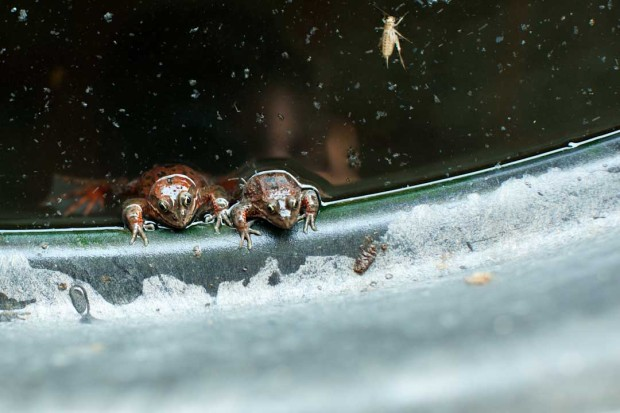Oregon Spotted Frog & HCP

General Background
In 2014, the Oregon spotted frog was listed as threatened by the U.S Fish and Wildlife Service (the Service). The species is present in the Upper Deschutes Basin, in and upstream of the City of Bend, which includes Crane Prairie, Crescent Lake, and Wickiup Reservoirs. The Service proposed the designation of ~22,000 acres of wetland, riverine, and reservoir habitat in the Upper Deschutes as “critical habitat”—areas which are believed to be essential to sustain and recover the species. As a result of two lawsuits in late 2015 and early 2016 filed by WaterWatch of Oregon and Center for Biological Diversity against North Unit Irrigation District and several other irrigation districts reliant on the Deschutes, a settlement agreement changed the operational procedures of Crane Prairie, Crescent Lake and Wickiup Reservoir.
Under the settlement, in exchange for the commitment by the irrigation districts and the Bureau of Reclamation to make positive changes to their operational procedures, the environmental groups’ lawsuits would be dismissed. These operational changes have impacted North Unit’s access to sufficient water supply and its ability to provide for other endangered species such as the Middle Columbia Steelhead in the summer. However, the District and their partners remain committed to completing a multi-species habitat conservation plan (HCP), which represents a proactive, collaborative approach to balance fish and wildlife conservation with water use in the Deschutes Basin through innovative science-based solutions. The HCP, once approved, will result in long-term benefits to the Oregon spotted frog, bull trout, steelhead, and other fish and wildlife species, the region’s water resources, and the social and economic health of communities. The HCP will also provide “Endangered Species Act”-related liability protection to the districts.
For a in-depth look at the HCP and its implementation throughout the Deschutes Basin, see Flowing to the Future link.
During the February ’22 Farm Fair, NUID hosted an in-depth discussion on the Deschutes Basin Habitat Conservation Plan (HCP), with panelists David Filippi with Stoel Rives LLP, Marty Vaughn with Biota Pacific Environmental Sciences, and Bridget Moran with the US Fish and Wildlife Service. David serves as legal counsel for the Deschutes Basin Board of Control (DBBC) on HCP matters, Marty serves as the DBBC’s biologist on HCP matters and served as the primary author of the HCP, and Bridget is the Field Supervisor for the Bend office of US Fish and Wildlife Service and is tasked with overseeing the DBBC’s implementation of and compliance with the HCP.
